SKILLED NURSING FACILITIES
IN MN & WI
Specializing in both short-term rehabilitation and long-term care, our clinical programs are individually designed for your unique needs. We strive every day to become the best caregivers we can be and making our guests the best versions of themselves they can be. Taking a holistic approach to recovery, we approach every guest’s recovery with the dedication and care they deserve.
Skilled Nursing Facilities In Minnesota
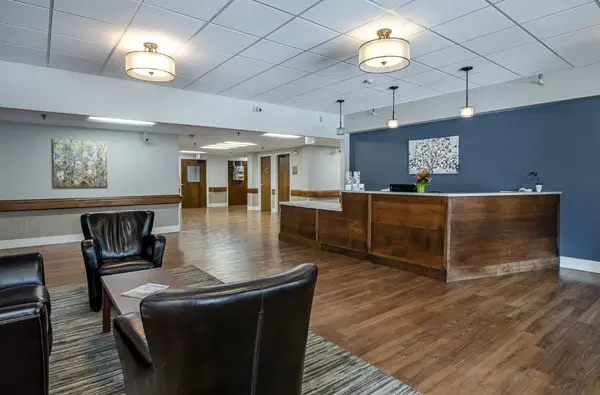
Edenbrook Edina
Edina, MN
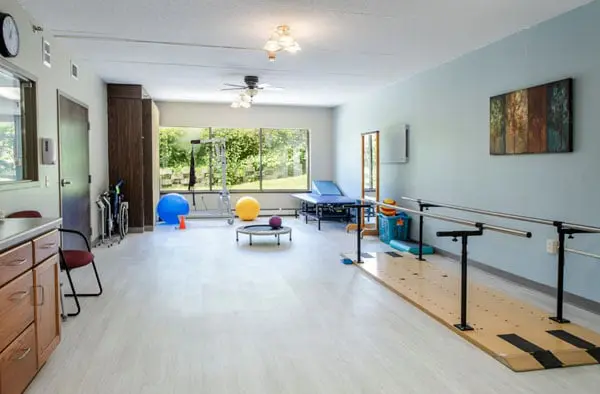
Edenbrook Rochester
Rochester, MN
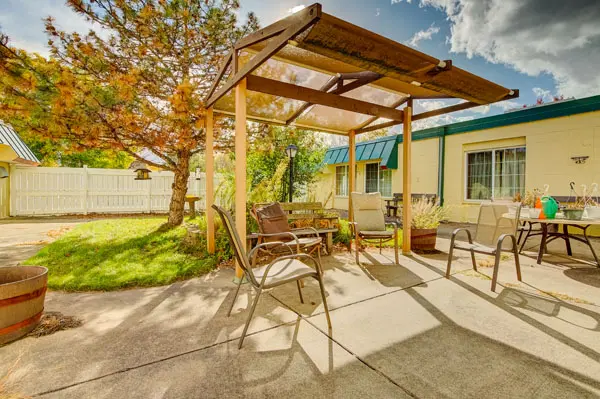
Edenbrook St. Cloud
St. Cloud, MN
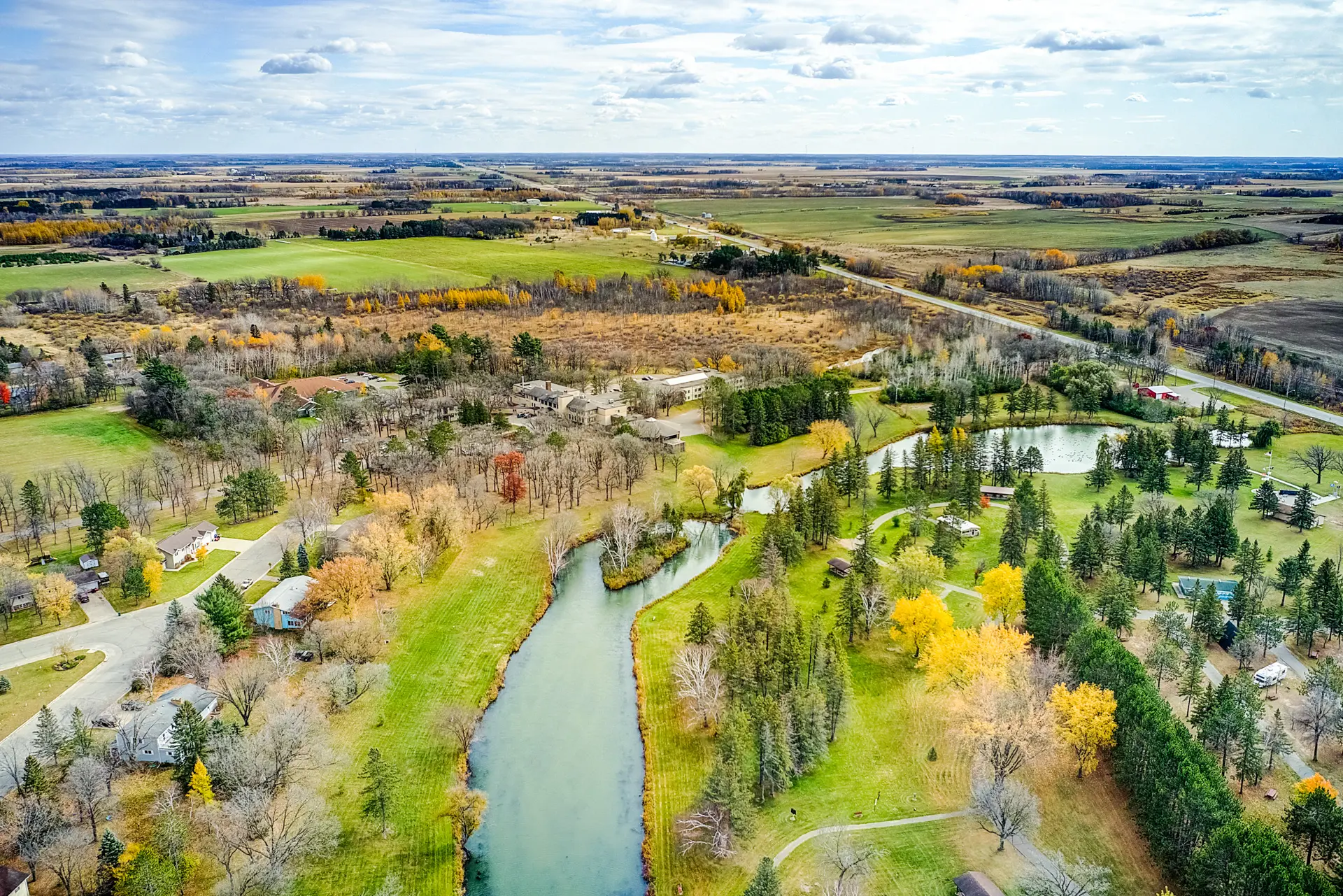
Fair Oaks Lodge
Wadena, MN
Skilled Nursing Facilities In Wisconsin
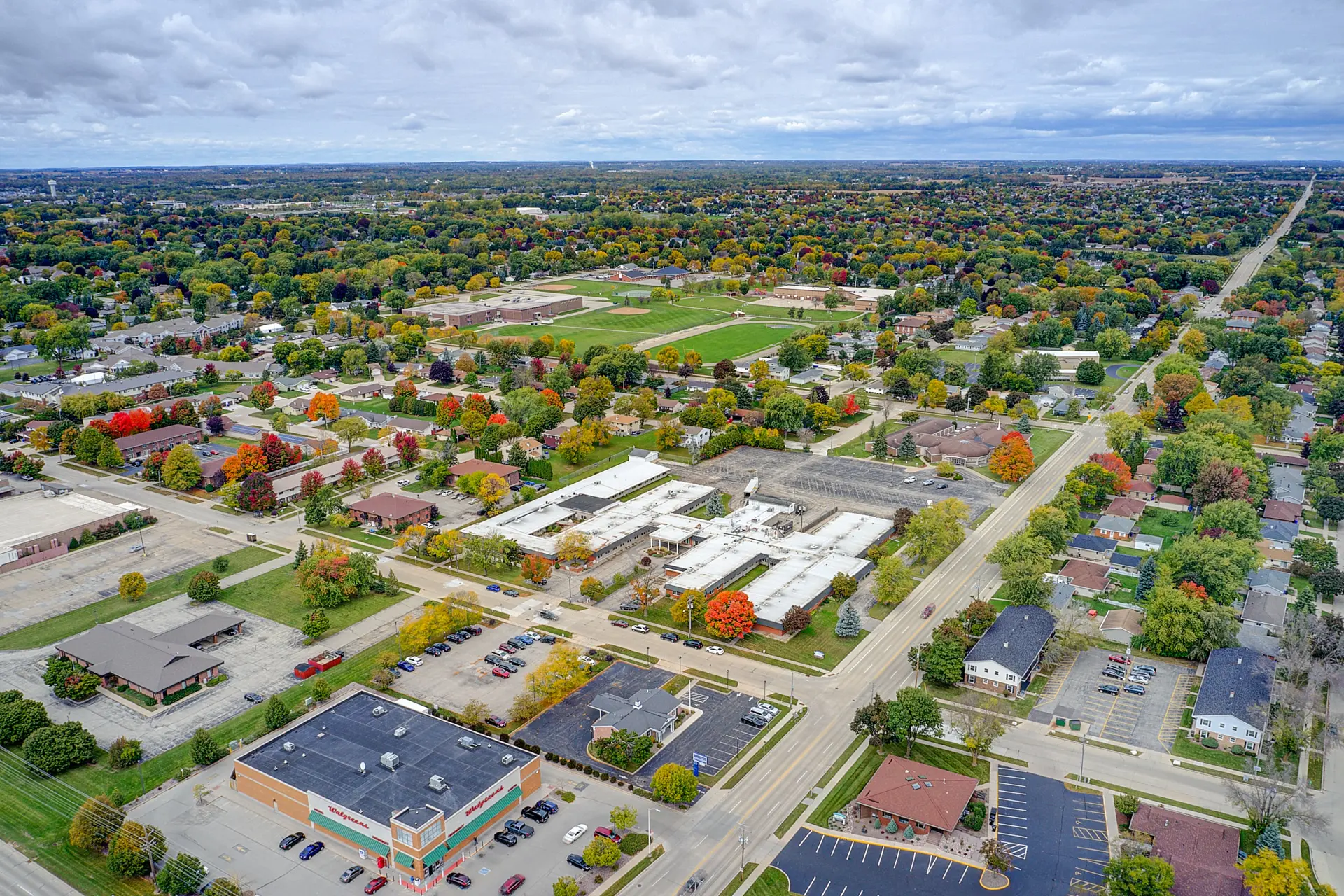
Edenbrook Appleton
Appleton, WI
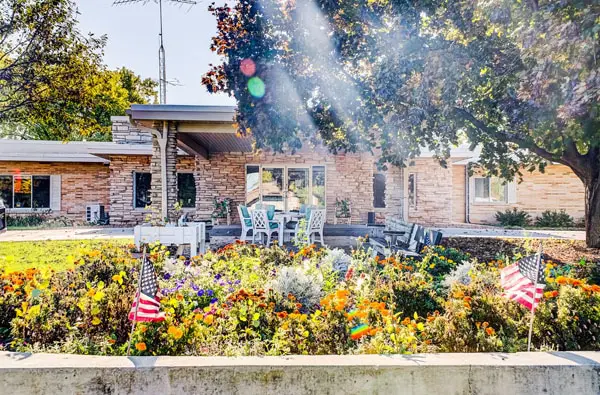
Edenbrook Fond Du Lac
Fond Du Lac, WI
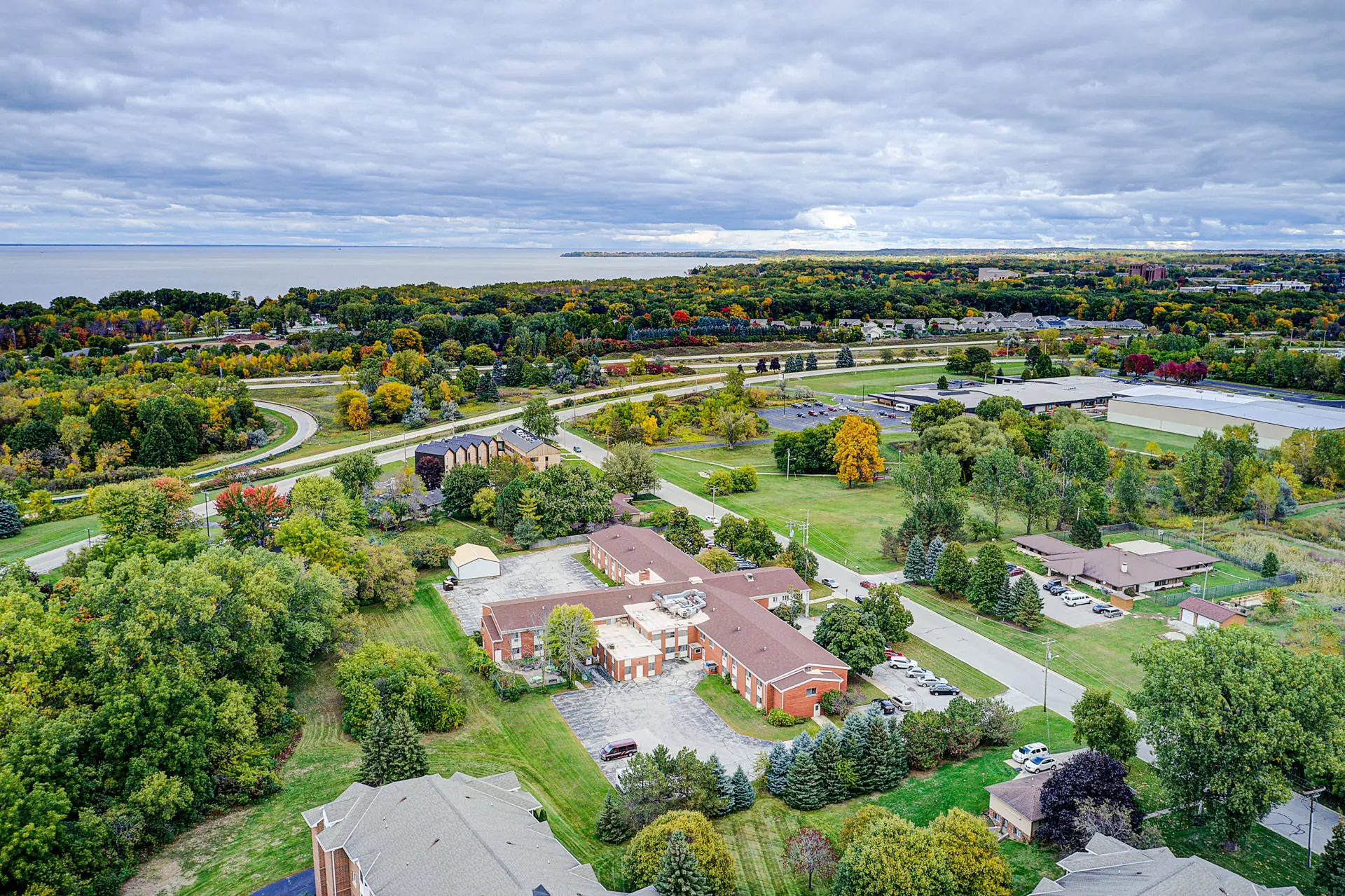
Edenbrook Green Bay
Green Bay, WI
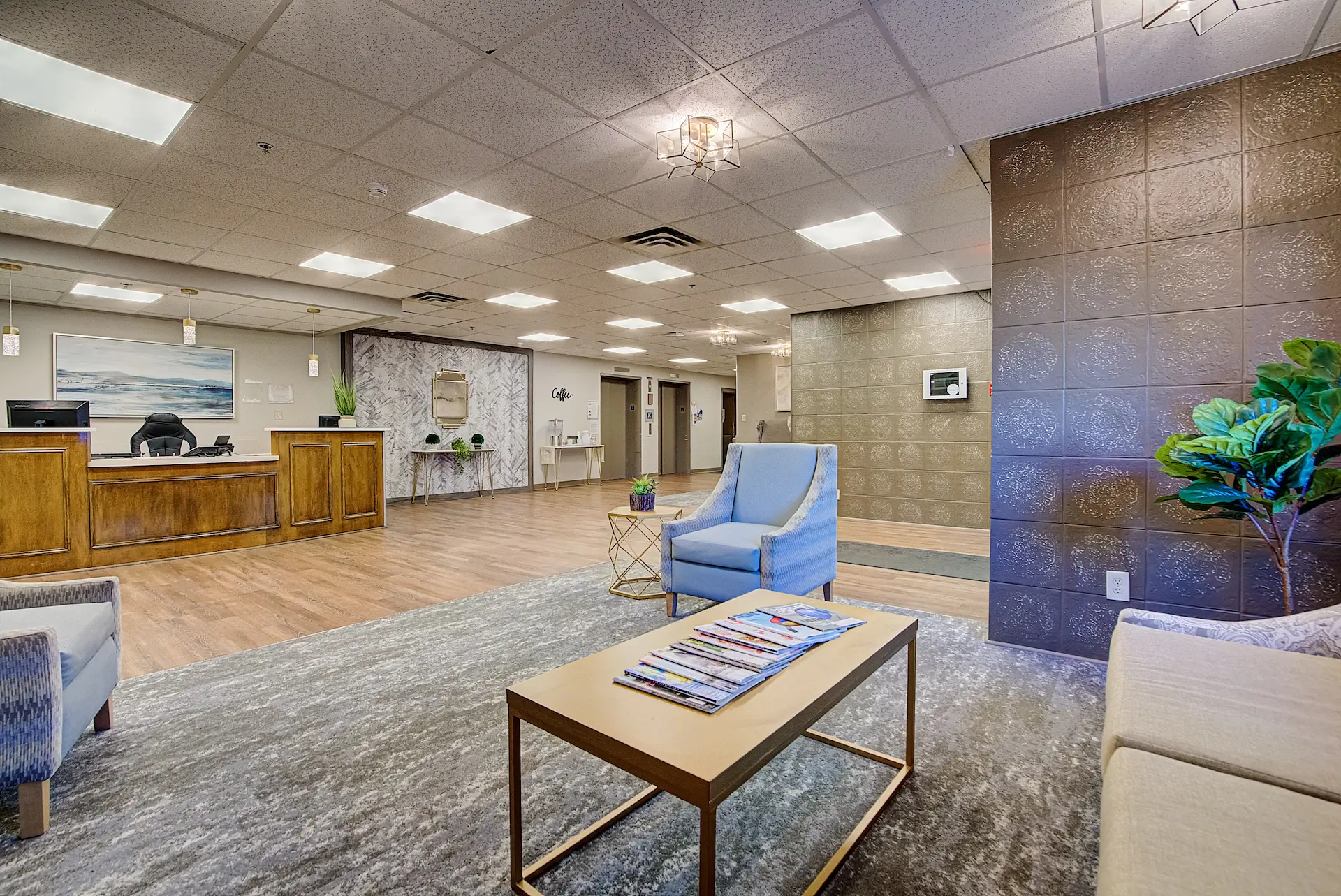
Edenbrook Lakeside
Milwaukee, WI
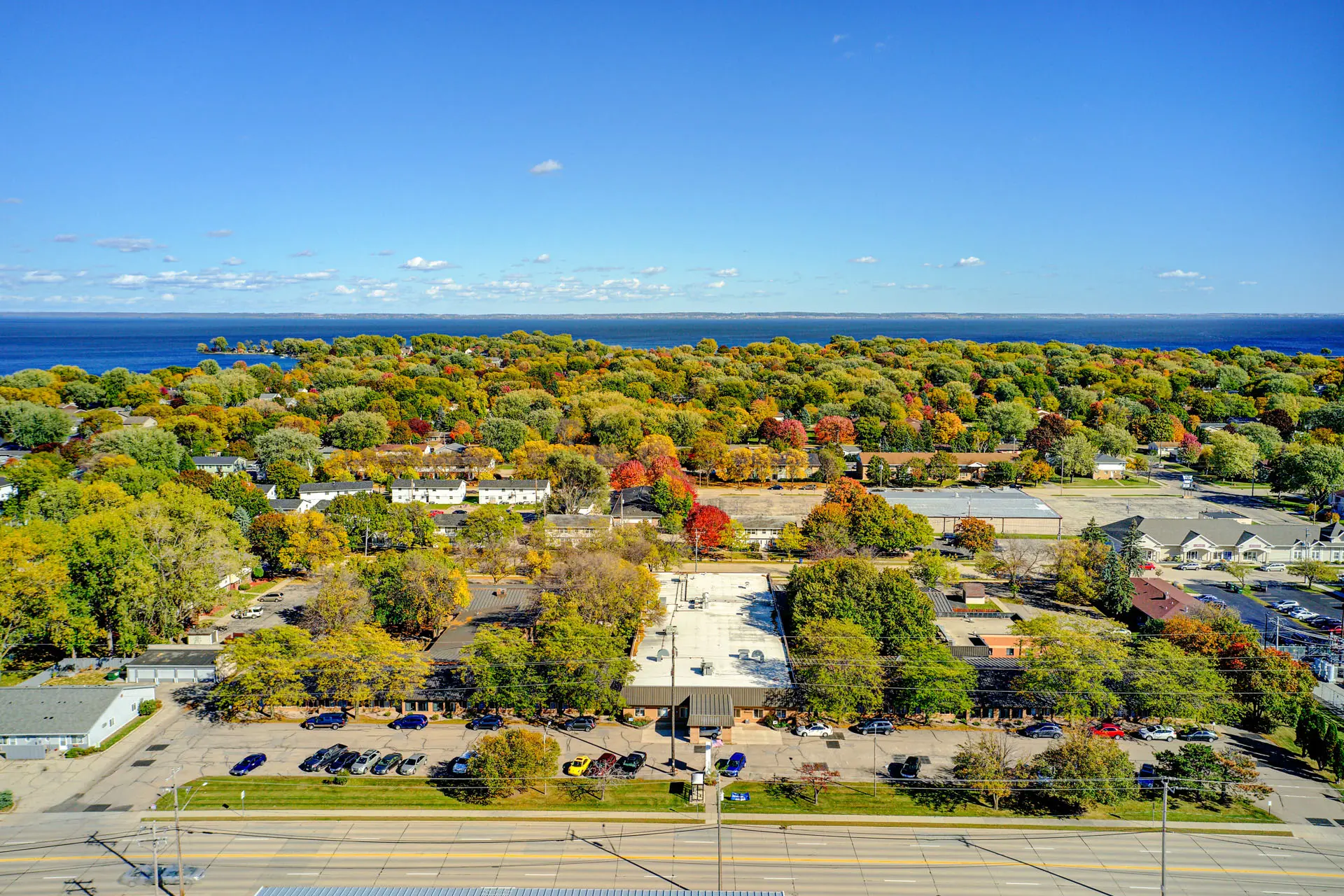
Edenbrook Oshkosh
Oshkosh WI
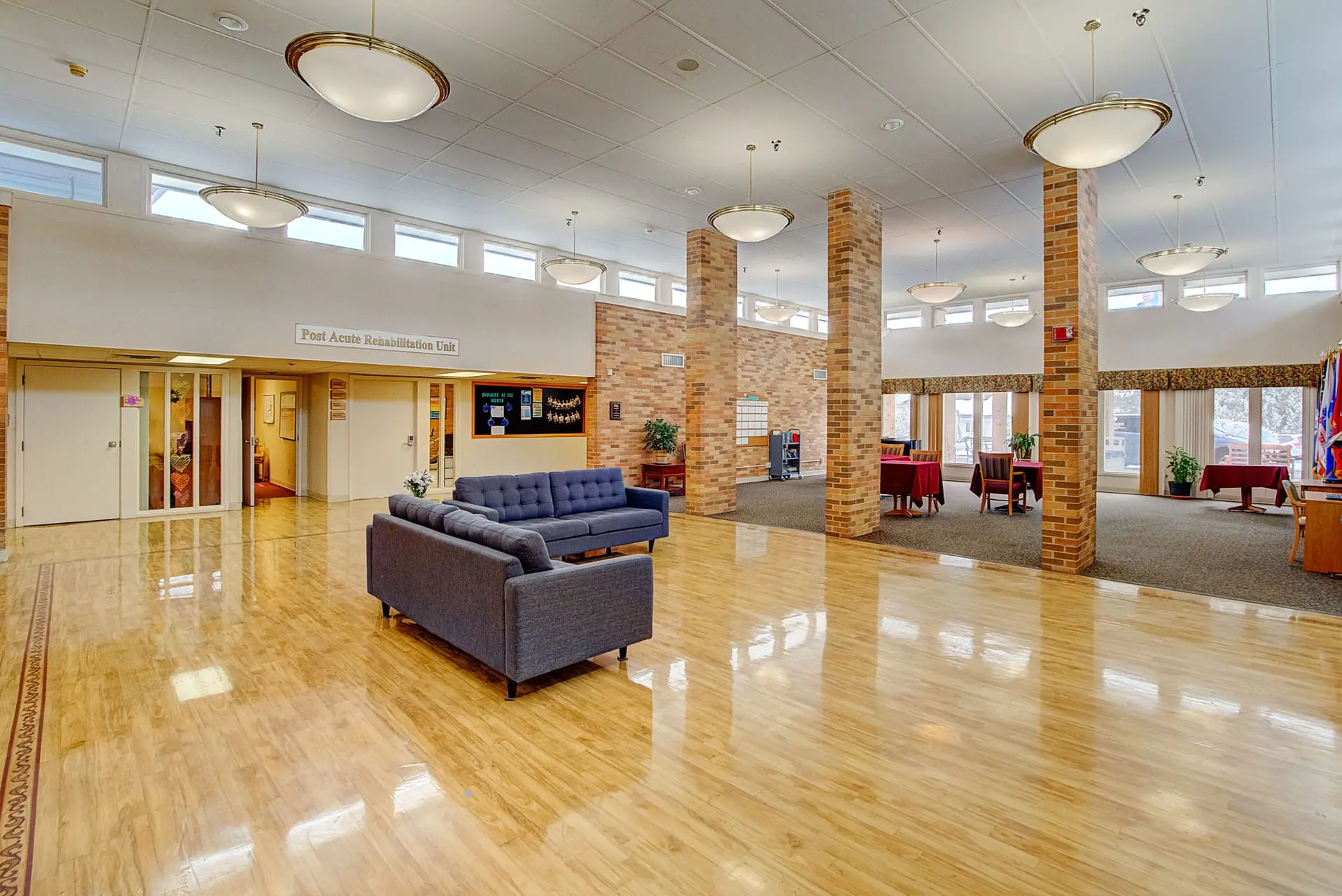
Edenbrook Platteville
Platteville, WI
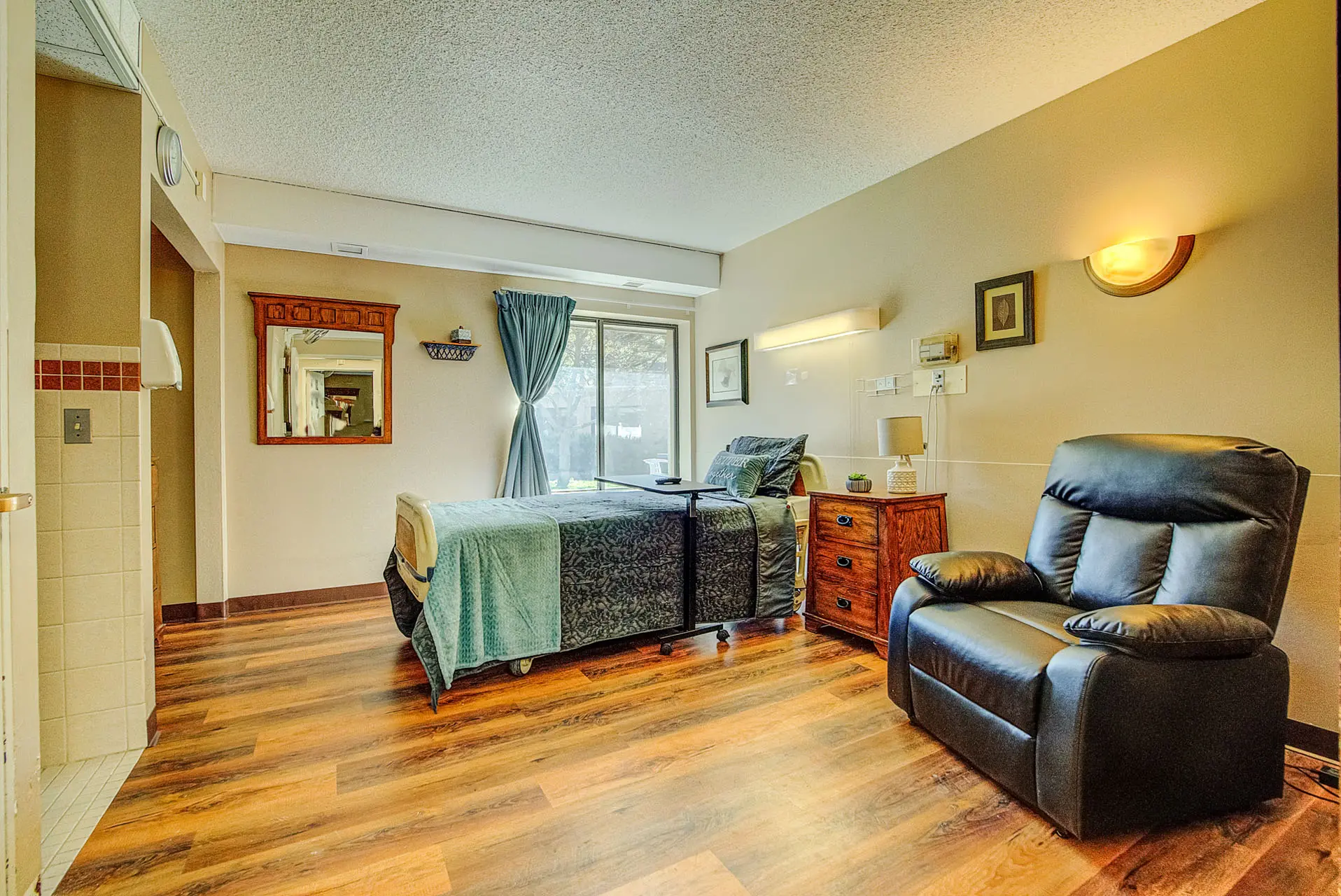
Edenbrook Wisconsin Rapids
Wisconsin Rapids, WI
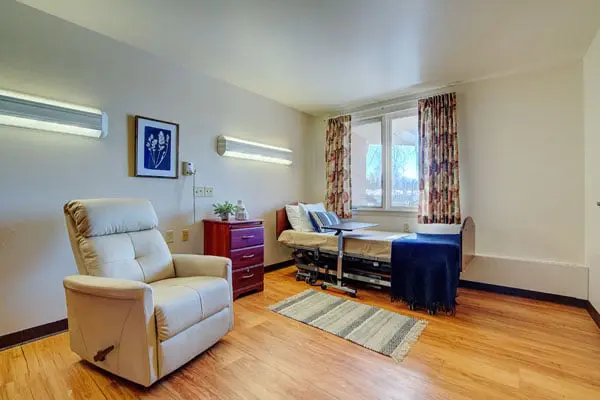
Evansville Manor
Evansville, WI
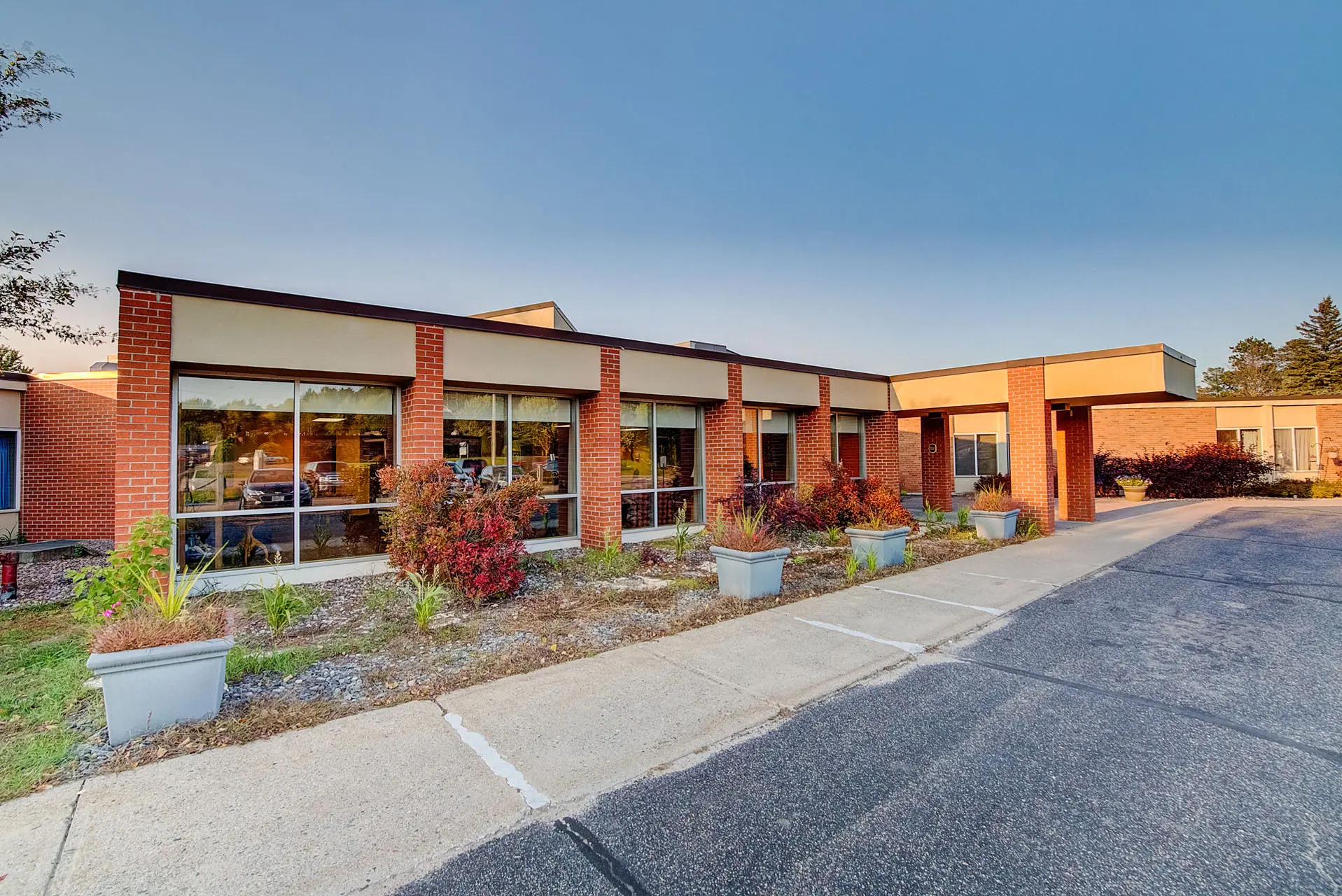
Friendly Village Rehab & Nursing
Rhinelander, WI
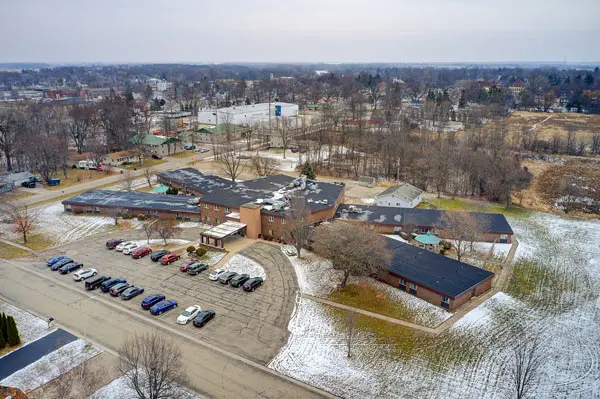
Omro Care Center
Omro, WI
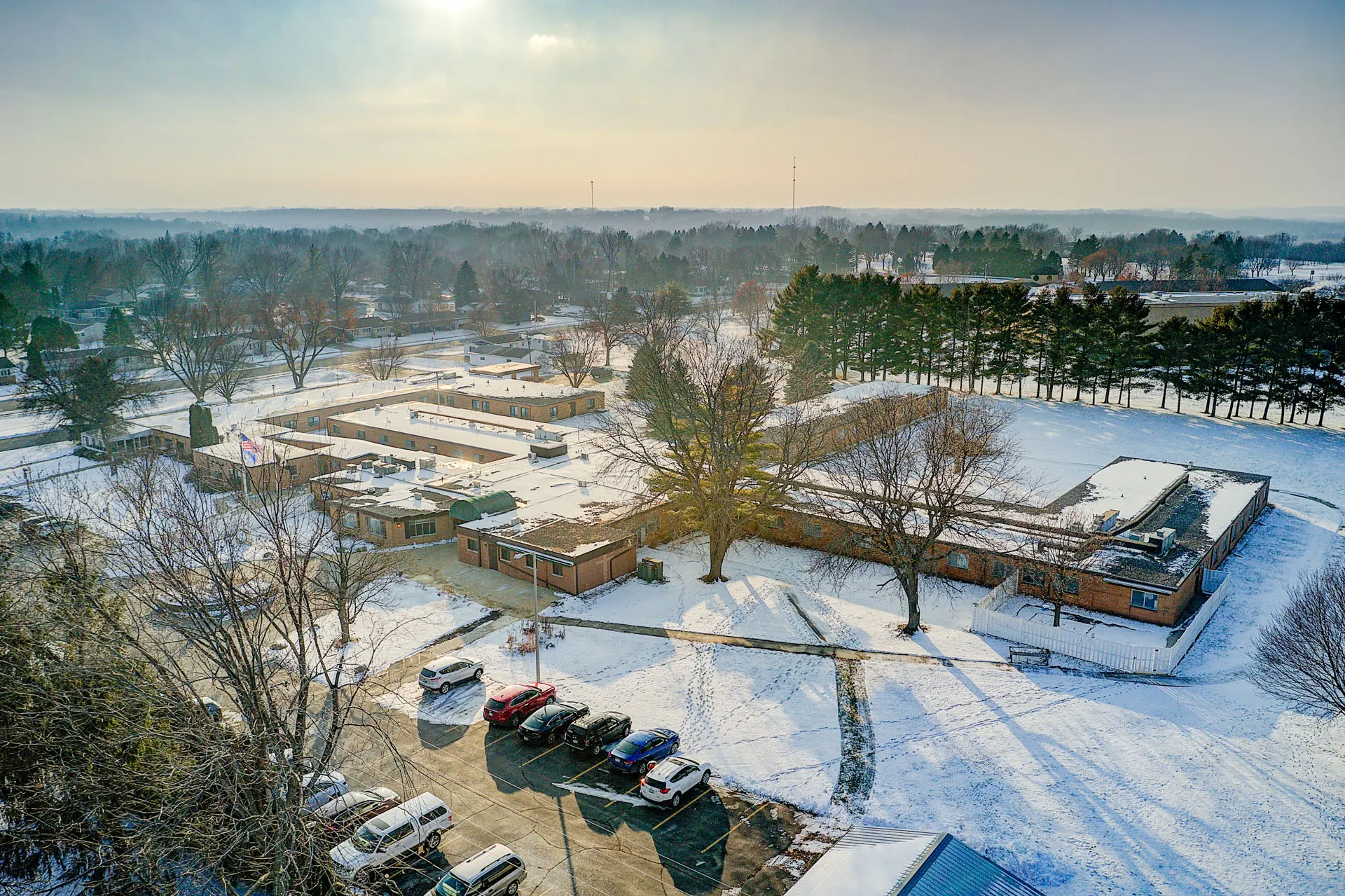
Whispering Pines
Ripon, WI
What Is Skilled Nursing?
Skilled nursing is a type of care that is provided in a skilled nursing facility. Skilled nursing is defined as the provision of services that require the skills of a registered nurse, licensed practical nurse, or certified nurse aide, along with other medical professionals. Below, we will talk about skilled nursing and its role in the senior healthcare industry.
What is a skilled nursing facility?
A skilled nursing facility is an in-patient rehabilitation and medical treatment center staffed with medical professionals including licensed nurses and trained therapists. Skilled nursing facilities provide the medically-necessary services usually following a hospital stay.
Patients at a skilled nursing facility can rely on 24/7 assistance and medical support. They receive services such as physical therapy and other rehabilitative services. Skilled nursing facilities provide 24-hour nursing care to their patients as well as physical therapy and other rehabilitative services.
Most skilled nursing facilities offer private rooms with semi-private bathrooms, meals served three times per day, recreational activities such as bingo or card games, social outings like trips to museums or shopping malls – all within an environment designed specifically around senior needs and abilities.
Patients in skilled nursing facilities may be recovering from an illness, injury, or surgery, receiving end-of-life care, or living with a chronic condition such as dementia or diabetes.
What to look for in a skilled nursing facility
Skilled nursing facilities are not all alike. If you want to choose the best nursing facility for a loved one, it’s important to do your research. Here are the things you need to look for in a skilled nursing facility if you are considering one for your loved one:
Reliable staff
It’s important to find skilled nursing facilities with a high staff-to-patient ratio so that your loved one will receive adequate care and attention. The staff should be experienced and qualified to meet the needs of your loved one.
You will be able to tell if the staff is reliable if they are friendly and greet you when you come to visit. They should also be willing to answer any questions that you have about the facility or your loved one’s care. At Eden Senior Care, we strongly encourage people to tour our facilities and experience the level of care for themselves. Click here to view our list of locations specializing in skilled nursing and book a tour today!
Clean environment
A clean environment is important for both your loved one’s health and well-being and your peace of mind. You need to be sure that the skilled nursing facility you choose is kept clean and free of hazards.
Most skilled nursing facilities offer housekeeping services. The skilled nursing staff should keep up with general maintenance as well.
Hygiene
The facility should be well-maintained. The grounds should be tidy, the equipment clean, and the food fresh and appetizing. Staff members should also practice proper hygiene procedures such as washing their hands after coming into contact with patients or before handling food items in the kitchen area. This will help to prevent the spread of germs that lead to illnesses like flu or gastrointestinal infections.
Activities and programs
A skilled nursing facility should have a full schedule of activities and programming to keep your loved one engaged and stimulated. This could include things like arts and crafts, group exercise, music therapy, or pet therapy. You will feel more at ease knowing that your loved one is being taken care of in a stimulating and engaging environment.
Dining options
The skilled nursing facility should offer healthy, delicious meals that are served three times per day. There should also be a variety of food choices available so that your loved ones can get the nutrition they need. You can ask to see the menu so that you can ensure your loved one will like the food choices.
Security and safety
The skilled nursing facility should be well-lit, clean, and safe. You also want to make sure that there are no hazards or environmental dangers present in the building where your loved one is going to live. You also have to check the security measures in place. There should be medical staff on-site around the clock and security personnel to ensure the safety of your loved one.
Accommodations
Skilled nursing facilities should provide private bathrooms for each resident. The accommodations should be comfortable and spacious, with plenty of room for residents to move around comfortably.
Each patient’s recovery room must be well-lit and well-ventilated. There must be a bed, closet, and other furniture to ensure that the patient can live comfortably in his or her own space.
Each room should have a telephone line for the exclusive use of each resident. This is important especially because some skilled nursing facilities do not allow mobile phones inside their premises. If patients need to make calls, they can use the phone in their room.
Patients should also have access to a television and radio. If they want to watch TV or listen to the radio, they should be allowed to do so in their recovery room. Patients who need assistance with these activities can get help from the nurses or caregivers on staff.
Costs
The average cost of a skilled nursing facility is about $290 per day. This may seem like a lot, but the care that patients receive in these facilities is well worth the money.
Patients should be aware of the costs associated with skilled nursing facilities before they decide to move into one. It is important to know that the costs can vary from one facility to another, so it is important to conduct research for comparisons.
You need to check with your insurance provider to find out if skilled nursing is covered. Skilled nursing facilities may also be covered by Medicare or Medicaid. Some facilities provide a sliding scale for payment based on income, so you need to speak with someone about your loved one’s situation when it comes to paying for skilled nursing care.
What is skilled nursing care?
Skilled nursing care is a type of care that is provided in a skilled nursing facility. Skilled nursing care is meant to help people who need 24-hour medical supervision and assistance with activities of daily living while recovering from an illness or injury.
With skilled nursing care, your loved one will have access to a rehabilitation gym, physical therapy, occupational therapy, speech-language pathology, and more.
- People who usually receive skilled nursing care include:
- Older adults who are no longer able to live independently
- People who have recently had surgery or an illness
- People who are recovering from a serious injury
What constitutes skilled nursing care?
Skilled nursing care is a wide range of services that are provided to people who need long-term care. The goal of skilled nursing care is to help a person maintain his or her independence for as long as possible. Skilled nursing care includes:
- Monitoring vital signs
- Administering medication
- Changing dressings
- Providing wound care
- Assisting with personal hygiene
Many skilled nursing facilities also offer physical therapy, occupational therapy, and speech therapy. These services can help a person regain mobility and independence more quickly.
What are examples of skilled nursing care?
Examples of skilled nursing care include:
- Intravenous therapy
- Catheter care
- Tube feeding management
- Diabetic management and education
These are tasks that are typically carried out by a registered nurse or a licensed practical nurse. However, many skilled nursing facilities also have certified nurse assistants who can provide basic care.
What qualifies a patient for skilled nursing care?
To qualify for skilled nursing care, a patient must:
- Need medical or nursing services that require the supervision of a skilled nurse
- Need to be under the regular and continuous care of a licensed physician
- Be confined to bed because they are unable to walk or stand without assistance
- Have an illness, injury, disability, or other condition that requires daily treatment by a licensed professional nurse (LPN) and/or registered nurse (RN)
Any condition that meets all of the requirements listed above may qualify a patient for skilled nursing care. Skilled nurses provide treatment and assistance with activities of daily living (ADLs) such as bathing, dressing, grooming, meal preparation/feeding, mobility assistance (walking or transferring), toileting, and incontinence care (changing or emptying catheters). They may also give medication reminders to ensure that patients take their prescriptions on time.
How much does skilled nursing cost? Is it fully covered by insurance?
Skilled nursing costs can vary from hundreds to thousands of dollars per day, depending on the severity of a patient’s health condition and the level of care needed. The cost also depends on the type of apartment or room the patient chooses.
Skilled nursing services are typically covered by Medicare, Medicaid, private insurance (such as personal health and long-term care insurance), and Veterans Benefits. However, skilled nursing costs can become expensive if they’re not fully covered by any of these payment options.
Skilled nursing facilities are generally expensive because they offer more “skilled” services than a standard nursing home. Skilled nursing facilities have specialized staff, equipment, and amenities to care for patients with complex health conditions. All of these things help make skilled nursing facilities the best option for patients who need around-the-clock care.
Rehabilitative services
Skilled nursing facilities offer both long-term and short-term care. Short-term rehabilitation services are usually needed after a hospital stay following an illness or injury (such as surgery). You need to check if the facility offers physical therapy, occupational therapy, and speech therapy. Each facility has a rehabilitation gym. At Eden Senior Care, we offer our guests state-of-the-art therapy equipment.
Remember, you should take a tour of the facility you are interested in.
Watch our video discussing the cost of skilled nursing below.
Insurance Coverage for Skilled Nursing Facilities
Does private insurance cover skilled nursing facilities?
Skilled nursing facilities may cover certain facilities that are in-network. For example, some policies may cover skilled nursing if it’s required as part of home health care.
Minnesota and Wisconsin insurance companies that may cover skilled nursing include the following:
- Medica (MN only)
- HealthPartners (MN only)
- UCare (MN & WI)
Medicare & Skilled Nursing
Does Medicare cover skilled nursing?
Medicare covers skilled nursing. In most cases, Medicare will pay for 100% of the costs associated with skilled nursing care. There are a few exceptions, such as when a person is in hospice care or if they have been admitted to a hospital within the last 30 days.
Does Medicare Part A cover skilled nursing?
Medicare Part A generally covers inpatient hospital care, including the skilled nursing services that may be provided while a person is hospitalized. Examples of these services include blood transfusions, IV administration of medication and oxygen, injections, and catheter changes. In some cases, though, Part A will cover skilled nursing care that’s provided outside of a hospital setting.
Does Medicare Part B cover skilled nursing?
Medicare Part B pertains to medical services. Therefore, it may cover skilled nursing care as long as skilled nursing is medically necessary and if the person receiving that care meets Medicare’s criteria to be a home health patient. This means that the individual requires skilled nursing services such as wound care or physical therapy.
How many days does Medicare cover skilled nursing care?
Medicare covers skilled nursing care in a skilled nursing facility for up to 100 days per benefit period. The first 20 days are covered completely, and the remaining 80 days are subject to coinsurance of $194.50 per day as of 2022.
Medicaid & Skilled Nursing
Does Minnesota Medicaid cover skilled nursing care?
Minnesota Medicaid covers skilled nursing care in a skilled nursing facility for people with low income and resources who meet eligibility requirements. There’s no limit on how long a person can receive skilled nursing care through Medicaid, but the program requires recipients to pay a copayment of $200 per month for skilled nursing services.
Does Medicaid in Wisconsin Medicaid cover skilled nursing care?
Medicaid in Wisconsin covers skilled nursing care in a skilled nursing facility for individuals determined by Medicaid to need skilled nursing care for 30 days or more. This usually includes individuals who are recovering from an illness, injury, or surgery and need skilled nursing care to help them regain their independence.
Skilled Nursing Care Facilities
What can a patient expect when at a skilled nursing facility?
Patients who are staying at a skilled nursing facility can expect to receive 24-hour care from nurses and other medical professionals. The staff at these facilities are specially trained to help patients with activities of daily living such as bathing, dressing, and grooming. Patients will also have access to therapists who can help them work on recovering any lost mobility or strength.
The goal of a skilled nursing facility is to help patients restore function and recover from an illness or injury as quickly as possible. This is so they can make a smooth transition to returning home or moving into an assisted living facility with less need for daily care.
Some activities that patients can expect to receive at skilled nursing facilities can include:
- Physical therapy
- Occupational therapy
- Speech-language pathology services
Patients may also be able to participate in engaging activities like art or music therapy. These are not considered medical therapies but they can be helpful for people who have trouble with their cognition, fine motor skills, or speech. Patients who are in skilled nursing facilities can also expect to receive regular assessments from a doctor. This is so that their care can be tailored specifically to them.
Is a nursing home considered a skilled nursing facility?
Skilled nursing services can be given in a nursing home, but a nursing home is not generally considered a skilled nursing facility. It’s important to note that most nursing homes only focus on providing basic care and they may not offer all of the services that are available in a skilled nursing facility. For example, a skilled nursing facility might provide physical therapy or speech therapy, while a nursing home would not.
Skilled nursing care can also be given in an individual’s home, a hospital, or a rehabilitation center. However, these settings are not typically considered skilled nursing facilities. The main thing that distinguishes skilled nursing facilities from other types of care is that skilled nursing facilities are considered to be a type of long-term care facility where patients can receive 24-hour skilled nursing care.
The differences between skilled nursing facilities and nursing homes
Even though nursing homes can provide skilled nursing care, they offer different types of services. Nursing homes provide long-term care for seniors who need help with activities of daily living such as dressing, bathing, and using the toilet. They may also have medical staff on-site 24 hours a day, but they are not required to do so. This means that nursing homes are a step down from skilled nursing facilities.
Skilled nursing facilities, on the other hand, are required to have medical staff on-site 24 hours a day and provide skilled nursing care. This can include physical therapy, speech therapy, wound care, or other medical services. Plus, skilled nursing facilities are licensed to provide rehabilitation services.
Is memory care considered skilled nursing?
Memory care is a specialized type of care that focuses on patients with Alzheimer’s disease and other forms of dementia. Memory care involves 24-hour supervision and assistance with activities of daily living to help residents maintain their independence and quality of life.
Memory care is considered skilled nursing because it requires a high level of medical expertise and professional care. Patients who receive memory care in a skilled nursing facility should be able to perform at least two activities of daily living before admission.
The goal of memory care is to provide residents with a safe and secure environment while offering them opportunities to engage in daily activities that are designed specifically for those with Alzheimer’s disease or dementia.
What’s the difference between assisted living and skilled nursing?
The difference between assisted living and skilled nursing is that assisted living communities provide only supportive services, while skilled nursing facilities offer a higher level of medical or “skilled” services.
Assisted living provides support for seniors who may be nearing the end of life, but are still able to live on their own. This type of care includes assistance with activities such as bathing, dressing, and grooming.
Skilled nursing, on the other hand, is for seniors who need more intensive medical care. This level of care can include wound care, tube feeding, and intravenous therapy.
Skilled nursing facilities offer a wide range of services, including skilled medical care, social and recreational activities, dietary counseling, and transportation. They also provide patients with the opportunity to participate in rehabilitation programs. Skilled nursing facilities are often used by people who have recently been discharged from a hospital or who have had surgery.
People also use skilled nursing facilities when they are recovering from an illness or injury and need round-the-clock monitoring. This means that skilled nursing is focused more on medical care, while assisted living is more focused on day-to-day tasks.
Who runs skilled nursing facilities?
Skilled nursing facilities are run by skilled nursing administrators. These individuals are responsible for managing the facility operations and making sure that all of the residents receive the medical care they need.
There are also many nurses and nurse aides who work in skilled nursing facilities. These professionals are responsible for providing residents with the care they need each day. Their services are needed 24/7 because the patients they attend to often have complex medical needs.
Physicians and therapists also play important roles in skilled nursing facilities. These professionals are responsible for providing residents with the medical care they need to stay healthy and recover from injuries or illnesses.
Is a skilled nursing facility a hospital?
A skilled nursing facility is not a hospital. Hospitals are medical facilities where people go to receive very intensive care for illnesses, injuries, and other health conditions. Skilled nursing facilities are places that provide seniors and others with more moderate levels of daily medical care. People usually admit into a skilled nursing facility after a hospital stay.
Skilled nursing facilities cannot replace hospitals. If a facility’s residents require services that go beyond what skilled nursing facilities can offer such as emergency care or surgery, then they must be transported to an appropriate hospital for evaluation and treatment. This is because a hospital has the resources, such as specialists and an intensive care unit, to provide the necessary care to patients who need it.
Final Thoughts
Skilled nursing care is something that you or your loved one may need after a hospital stay. Skilled nursing facilities can provide the care you need to recover from an illness, injury, or surgery in a safe environment with licensed medical staff on-site 24 hours a day.
For more information on skilled nursing, get in touch with one of our admission specialists. Whether you have general questions about skilled nursing or you are looking to tour one of our skilled nursing facilities,we are here to assist in any way we can.
